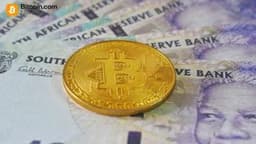- Wallet
- Blockchains


Tornado Cash is a decentralized, non-custodial privacy solution built on the Ethereum blockchain. It enhances transaction privacy by breaking the on-chain link between recipient and destination addresses. Users can deposit ETH or ERC-20 tokens into Tornado Cash's smart contract, which then allows withdrawals to a different address, effectively obfuscating the transaction trail. In August 2022, the U.S. Department of the Treasury's Office of Foreign Assets Control (OFAC) sanctioned Tornado Cash, alleging its use in laundering over $7 billion in virtual currency since its creation in 2019, including funds stolen by North Korea's Lazarus Group. However, in November 2024, a U.S. appeals court ruled that the Treasury had exceeded its authority in sanctioning Tornado Cash, as its immutable smart contracts did not qualify as property under federal law. Subsequently, in March 2025, the Treasury Department removed Tornado Cash from its sanctions list. Following the lifting of sanctions, Tornado Cash's governance token, TORN, experienced significant price movements, with a 56.5% increase over 24 hours. Tornado Cash continues to operate as a privacy tool within the Ethereum ecosystem, allowing users to conduct transactions with enhanced anonymity. Its open-source code and decentralized structure ensure that no central entity controls the protocol, aligning with the principles of decentralization in the blockchain space.
Tornado Cash is a decentralized, non-custodial privacy solution on the Ethereum blockchain that enhances transaction privacy by breaking the on-chain link between recipient and destination addresses.
Users deposit ETH or ERC-20 tokens into Tornado Cash's smart contract. These deposits can be withdrawn by any on-chain address, effectively obfuscating the transaction trail between the sender and the recipient.
In August 2022, the U.S. Department of the Treasury sanctioned Tornado Cash, alleging its use in laundering over $7 billion in virtual currency, including funds stolen by North Korea's Lazarus Group.
In November 2024, a U.S. appeals court ruled that the Treasury had exceeded its authority in sanctioning Tornado Cash, as its immutable smart contracts did not qualify as property under federal law. This led to the removal of Tornado Cash from the sanctions list in March 2025.
Following the lifting of U.S. Treasury sanctions in March 2025, Tornado Cash is no longer under federal sanctions. However, users should remain aware of and comply with local regulations regarding the use of privacy tools and cryptocurrency mixers in their respective jurisdictions.
TORN tokens can be purchased on various cryptocurrency exchanges, including centralized exchanges like HTX, MEXC, and CoinEx, as well as DEXs like Uniswap, Sushiswap, and PancakeSwap.
TORN tokens can be stored in wallets that support Ethereum-based tokens, such as the Bitcoin.com Wallet, MetaMask, or Trust Wallet. Hardware wallets like Ledger and Trezor offer additional security.
South Africa’s Finance Minister Enoch Godongwana announced draft rules to bring cryptocurrency under capital flow management.

Bitwise Asset Management has acquired Chorus One, folding one of the crypto industry’s longest-running staking infrastructure firms.

The Treasury Department sanctioned a Russian exploit broker network accused of trafficking stolen U.S. trade secrets and government cyber tools for

XRP Ledger was deliberately engineered to prevent Ripple from controlling it, Ripple CTO Emeritus David Schwartz claimed, describing it as a design choice

Meta, Coinbase, and Kraken are racing to build financial superapps, blending stablecoin payments, 24/5 stock trading, and 24/7 tokenized derivatives as

